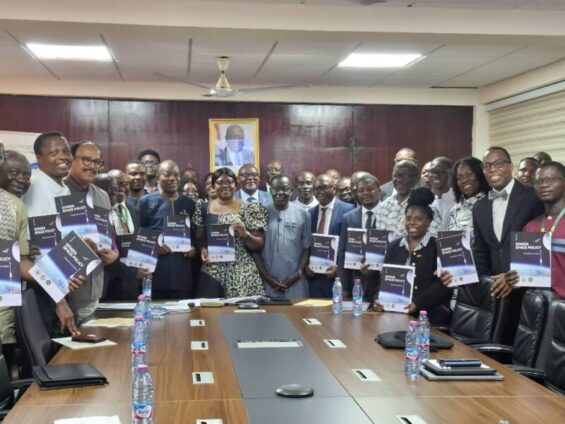Ghana has launched a comprehensive policy for the utilisation of space science technology to drive national development.
The Ghana Space Policy would pave way for the establishment of the Ghana Space Agency to coordinate the development of human capital, infrastructure, and the overall growth of the space science sector.
Mrs. Ophelia Hayford, Minister of Environment, Science, Technology and Innovation (MESTI) launched the Policy at a ceremony in Accra on Tuesday.
Cabinet approved the Ghana Space Policy in March 2022.
Ghana has been employing space technologies in critical areas such as environmental monitoring, security, precision agriculture, navigation, weather forecasting, disaster management, and telecommunications.

Mrs. Hayford said the Policy would ensure that the deployment and usage of space technology were coordinated, regulated, standardised, and sustainably managed.
She said the Ministry would collaborate with relevant ministries and the private sector to ensure the successful implementation of the Policy.
“Let us leverage it (policy) to promote sustainable practices, drive technological advancement, foster international cooperation, and contribute significantly to the growth of space science in Ghana and across Africa,” the Minister said.
In 2011, Ghana signed the African Square Kilometre Array (SKA) partnership agreement with South Africa and seven other African countries to develop the world’s largest radio telescope network to explore the universe and conduct leading-edge research.
Dr. Joseph Bremang Tandoh, Director, Ghana Space Science and Technology Institute, said investments in Ghana’s space programme were necessary to support agriculture, infrastructure, and economic growth.
“Space technology can help us manage resources, track agricultural health, and mitigate climate change,” he said.
“With this policy, we are not just joining the space race but creating opportunities for economic growth, job creation, and technological advancement,” Dr Tandoh added.
Dr Kofi Asare, Manager, Remote Sensing and Climate Sector, said the country could utilise space technology to effectively manage her land and water resources to reduce destruction.
Under agriculture, he said satellite technology could help to monitor crop health, soil conditions, weather patterns and crop yield prediction and estimation.
Professor Elvis Asare-Bediako, Vice-Chancellor, University of Energy and Natural Resources (UENR), said the University was working towards undergraduate and postgraduate programmes to train students in space technology.
“We are ready and equipped with expertise to partner with the Government to push the exploration of space technology to its appropriate height,” he said.
Latest Stories
-
Majority requests recall of Parliament
15 mins -
Kanzlsperger and Professor Quartey support WAFA with medical Donation
16 mins -
Gideon Boako donates 10 industrial sewing machines to Yamfo Technical Institute
33 mins -
‘Golden Boy’ Abdul Karim Razak honored at WAFU-B general assembly
47 mins -
Buipewura Jinapor secures Vice Presidential position in National House of Chiefs with record votes
56 mins -
2024 election: I want results to come out like ‘milk and honey’ – Toobu
57 mins -
Ghana’s Henry Bukari hands over chairmanship of ECOWAS Brown Card Council of Bureaux
1 hour -
Residents of Dome-Kwabenya on edge ahead of December elections
2 hours -
Moffy drops new single ‘Wo’, blending culture and modernity
2 hours -
Don’t bring soldiers to polling stations – Martin Kpebu
2 hours -
Ogyeahohuo Yaw Gyebi II retained as President of National House of Chiefs
2 hours -
Embrace ICT to fit in digital world – Ho NYA boss to youth
3 hours -
We don’t want armed soldiers at polling stations – Tanko-Computer
3 hours -
Drama as police corner armed robbers inside locked forex bureau at Lapaz
3 hours -
NEIP CEO to Kwaku Manu: You can support any political party, but stop misbehaving in NPP colours
3 hours

